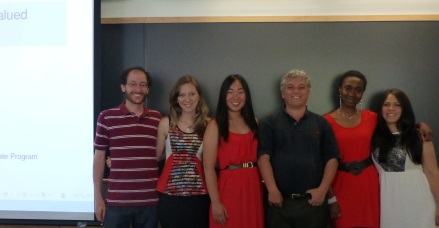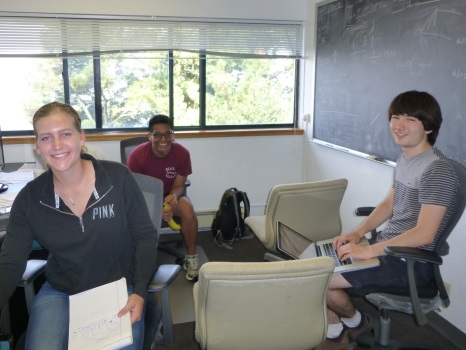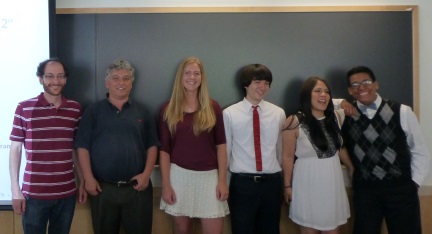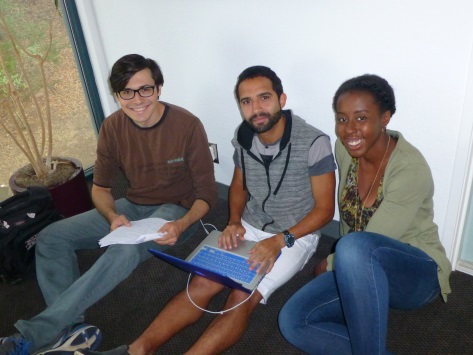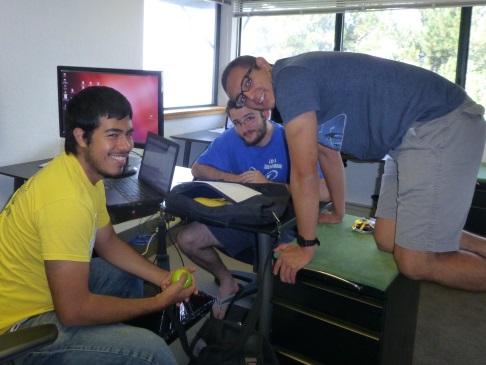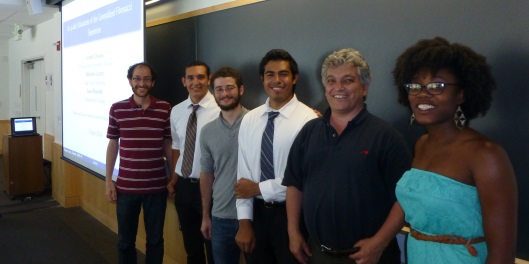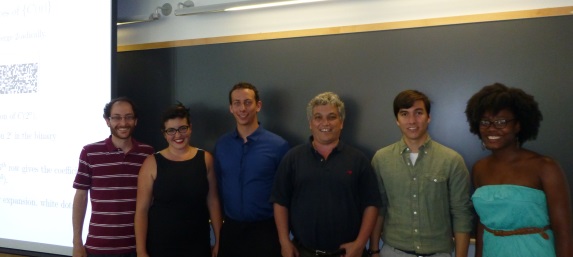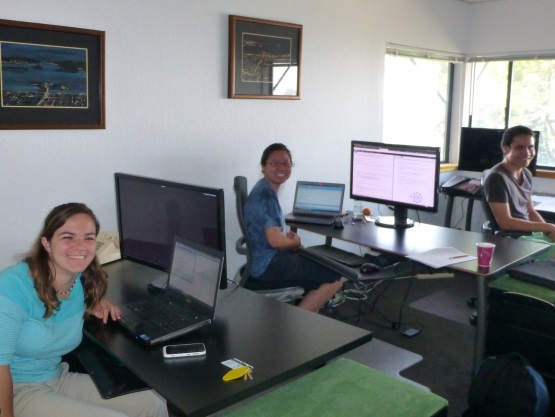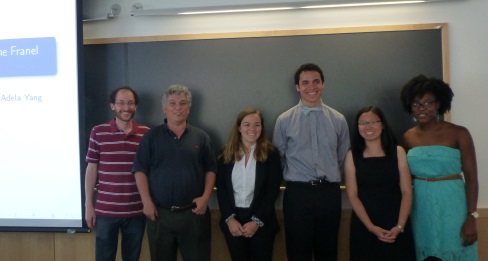MSRI-UP 2014: Arithmetic Aspects of Elementary Functions
| Home | Research Topic | People | Colloquia | Research Projects |
A complete collection of the research reports written by the six 2014 MSRI-UP research teams is available here. Below is a title and abstract for each of the projects.
Sequences of p-adic valuations of polynomial functions: an analysis of non-p-regularity and erratic behavior
|
|
Alyssa Byrnes, Tulane University Isabelle Nogues, Princeton University Amber Yuan, University of Chicago
|
Abstract: In the field of number theory, the p-adic valuation is a useful device in studying the divisibility of an integer by powers of a given prime p. This paper centers on 2-adic valuations of quadratic polynomials in Z[x]. In particular, the existence and properties of roots of such polynomials modulo 2l are determined and assessed. Polynomials of particular interest are those that yield non 2-regular sequences in Q2. Such sequences are represented in a novel infinite tree form, and patterns in such trees are analyzed to classify the sequences by their structure and non 2-regular properties. Such classification is further refined through an algebraic analysis of the polynomials at hand.
Catalan numbers modulo 2α
|
|
David Cervantes, State University of NY at Potsdam Erica Musgrave, St. Mary's College Gianluca Pane, Brown University
|
Abstract: Catalan numbers have been studied since the eighteenth century due to their frequent appearance in fields such as set theory, graph theory and combinatorics. However, there are still few results about their properties modulo prime powers. In particular, this project examines the number of residues obtained by viewing Catalan numbers modulo powers of 2. For example, it is known that no Catalan number is equivalent to 3 modulo 4. Similarly, it can be shown that C(n) is not congruent to 1 modulo 8, for n great than or equal to 2. Can other residues that do not occur for higher powers of 2 be characterized? As these higher powers of two are analyzed, it can be seen experimentally that more and more residues are not attained. Data has been produced to conjecture that as α gets large, the proportion of residues modulo 2α attained by some Catalan number is between 0.125 and 0.27.
Arithmetic properties of infinite products
|
|
Hadrian Quan, University of California, Santa Cruz Fernando Roman, Kansas State University Michole Washington, Georgia Institute of Technology
|
Abstract: The work discussed here develops methods to evaluate certain infinite products in closed form. These are finite products of values of the Gamma function. Presented here are infinite products of rational functions R(n) raised to the power of some sequence Mn. The sequences satisfy certain regularity conditions as either a l-periodic or k-automatic. Of particular interest is the regular paperfolding sequence considered by J.P. Allouche. Also included are some results on the p-adic valuation of partial products of these types, which also contain some patterns of interest.
On p-adic valuations of generalized Fibonacci sequences
|
|
Joseph Chavoya, California State University Fullerton Alphonso Lucero, Iowa State University Sean Reynolds, University of Chicago
|
Abstract: We study the p-adic valuations of generalized Fibonacci sequences, focusing on the particular sequence given by Sn = Fn + 2 Ln, where Fn and Ln are the Fibonacci and Lucas sequences, respectively. Analyzing this sequence, we create a closed form formula for certain p, as well as formulate conjectures regarding sequences appearing from studying νp(Sn).
On p-adic limits of combinatorial sequences
|
|
Alexandra Michel, Mills College Andrew Miller, Amherst College Robert Joseph Rennie, Reed College
|
Abstract: Methods for determining p-adic convergence of sequences which are expressible in terms of products of factorials are established. The Catalan sequence is investigated, using these methods, for p-adically convergent subsequences. An infinite class of convergent subsequences of Catalan numbers is found for every prime, and the limits of these subsequences are evaluated
On the divisibility and valuations of the Franel numbers
|
|
Abraham Schulte, Northwestern University Samantha VanSchalkwyk, Mount Holyoke College Adela Yang, Bowdoin College
|
Abstract: The Franel numbers are the sums of the cubes of binomial coefficients. This sequence is of great interest. They are the first power for which the sums are not defined by a closed form formula. Primes may be partitioned with respect to the p-adic valuations of Franel numbers: those whose valuation is always 0, those whose valuation is equal to the number of occurrences of a particular digit in base-p, and those which fall into neither category. Furthermore, the 2-adic valuations of the Franel numbers have interesting properties. This project explores the properties of these numbers.


